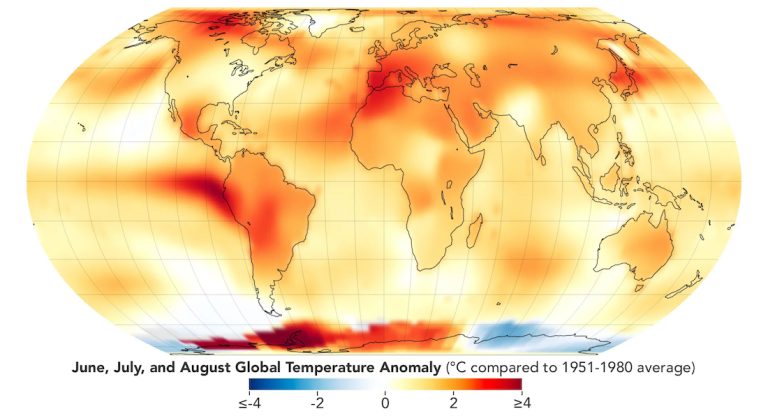
Understanding Causes, Consequences of Hottest Day Ever Recorded
New York, N.Y. The scorching sun beat down relentlessly, shattering previous records and marking a grim milestone in our planet’s ongoing climate crisis. On this day, Monday, July 22, 2024, temperatures soared to unprecedented levels, with cities across the globe experiencing the hottest day ever recorded. This event serves as a stark reminder of the urgent need for global action to combat climate change.
A Global Phenomenon
The heatwave that led to this record-breaking day was not confined to one region. From North America to Europe, Asia to Africa, nations reported soaring temperatures. In the United States, cities like Phoenix and Las Vegas reached temperatures well above 110°F (43°C), while in Europe, parts of Spain and Italy saw thermometers climb past 40°C (104°F). Even typically temperate regions, such as the UK and Scandinavia, experienced sweltering heat. Our school in Bihar, India closed due to the excessive heat – as did many other schools across South and Southeast Asia.
This widespread phenomenon is a clear indication of the changing climate patterns that scientists have warned about for decades. The increasing frequency and intensity of heatwaves are linked to human-induced climate change, primarily driven by the burning of fossil fuels and deforestation. These activities increase greenhouse gas emissions, trapping more heat in the Earth’s atmosphere and leading to rising global temperatures.
The Impact on Daily Life
The effects of the hottest day on record were immediate and far-reaching. In urban areas, where concrete and asphalt exacerbate heat conditions, hospitals reported a surge in cases of heat-related illnesses such as heatstroke and dehydration. Vulnerable populations, including the elderly, children, and those with pre-existing health conditions, were particularly at risk.
Infrastructure struggled to cope with the extreme temperatures. Power grids were strained as air conditioning use spiked, leading to blackouts in some areas. In others, roads buckled under the heat, and public transportation systems faced delays due to equipment malfunctions. The agricultural sector also suffered, with crops wilting in the fields and livestock at risk from the heat.

A heatwave can be defined as a period where local excess heat accumulates over a sequence of unusually hot days and nights. Heatwaves amplify many risks, such as health-related or economic risks, including increased human mortality, drought and water quality, wildfire and smoke, power shortages and agricultural losses.
A Call to Action
The hottest day on record is more than just a weather anomaly; it is a call to action. Scientists warn that if current trends continue, such extreme weather events will become more common and severe, with devastating consequences for ecosystems, economies, and human health.
Addressing this crisis requires a concerted global effort to reduce greenhouse gas emissions and transition to sustainable energy sources. Governments, businesses, and individuals all have a role to play. Policies promoting renewable energy, energy efficiency, and sustainable land use are crucial. At the same time, communities need to be better prepared to cope with the impacts of extreme heat, including improving urban planning, expanding green spaces, and enhancing public health systems.
The Role of Public Awareness and Engagement
Raising awareness about the realities of climate change is essential. The media plays a critical role in conveying the seriousness of the situation and the need for immediate action. Education systems should incorporate climate science into curricula to equip future generations with the knowledge they need to address this challenge.
Individuals can also make a difference by adopting more sustainable lifestyles. Simple actions like reducing energy consumption, using public transportation, and supporting environmentally responsible companies can collectively have a significant impact.
The record-breaking heatwave serves as stark reminder of our urgent need to address climate change
It highlights the vulnerabilities of our current systems and the dire consequences of inaction. As we face an increasingly uncertain future, the choices we make today will determine the world we leave for future generations. It is imperative that we rise to the challenge, embracing innovation, cooperation, and a shared commitment to protecting our planet.
The Hottest Day on Record: Wake-Up Call for Our Baking Planet (July 23, 2024)